
The Charger Blog
Charger Blogger Hikes and Ponders the Meaning of Life
Beatrice Glaviano ’26 shares her Spring Break journey of hiking Great Falls—and why unplugging is essential for college life.
The Charger Blog
Two MPH candidates received prestigious scholarship awards from the Society for Public Health Education. They recently participated in the organization's national conference focusing on advocacy and equity in healthcare.
July 12, 2023
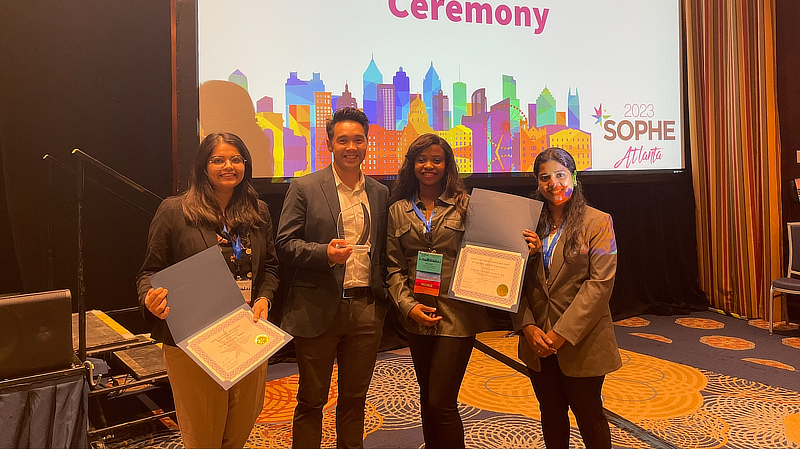
For Muskan Kohli '24 MPH and Opemipo Olaseni '23 MPH, taking part in the Society for Public Health Education (SOPHE) national conference on "The New Age of Civil Rights – Advocacy and Equity" was an extraordinary experience.
Kohli received a $2,500 Vivian Drenckhahn Student Scholarship Award presented to students "who have excelled academically and demonstrated a commitment to addressing the public's health through a career in health education."
At the conference, Kohli presented research done in collaboration with her mentor, Alvin Tran, ScD, MPH, director of the B.S. in Public Health program and assistant provost for diversity, equity, and inclusion, on "Muscle Enhancing Supplements and Intimate Partner Violence in Sexual Minority Men: A Call to Action."
Their research found that 16 to 36 percent of adolescent boys and young adult men reported using performance-enhancing substances including protein powders, creatine, and anabolic-androgenic steroids. Compared to those not using the substances, those reporting low use of protein powders were nearly 6 times more likely to experience intimate partner violence, their research found.
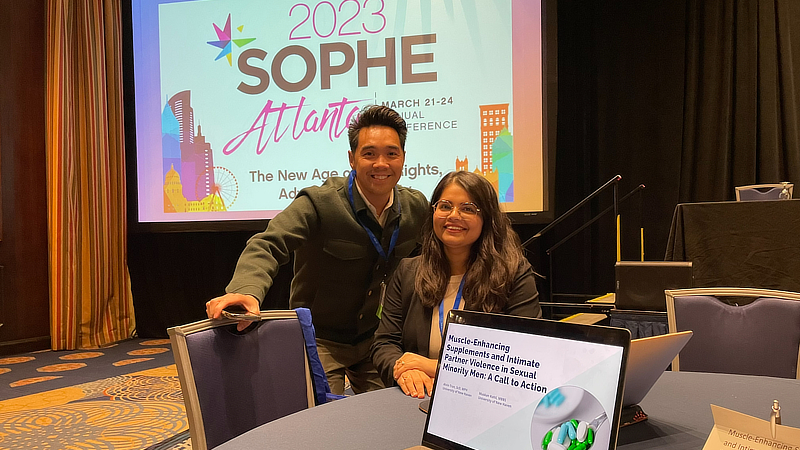
"Dietary supplements that are marketed for weight control and muscle building are loosely regulated and are often deceptively marketed for their effectiveness," explained Dr. Tran. "Unfortunately, research has linked some of these products to a number of adverse health outcomes, including cancer, organ failure, and even death. Muskan's project is part of a growing number of research studies that not only aim to highlight the hidden dangers of diet pills, but also strives to introduce legislation to better regulate these products."
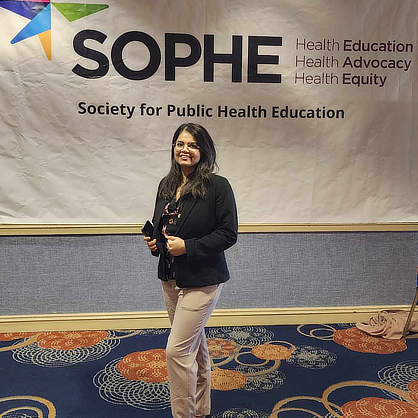
Kohli, a fellow in the University's WeEmbody Lab, had never presented a scientific paper at a conference before. "The experience was amazing," she said. "I got to present the paper and take questions from so many leaders and public health experts, people working at the CDC, college and university professors, and students."
Meanwhile, one of her classmates, Opemipo Olaseni, was one of three students to receive the 21st Century Student Scholarship, a $1,500 award which enabled her to attend the conference.
"I knew I would be empowered, hearing what people in public health had to say about civil rights and about advocating for equity, fairness and social justice," she said.
Olaseni, who is from Nigeria, came to the University after studying medicine in Ukraine, determining what she really wanted to do centered on public health, preventive medicine, and epidemiology. She found the University to be the perfect fit. "The professors have always been there for me, and I've had so many wonderful experiences," she said.
She interned at the Yale Cancer Center working with a team developing a novel vaccine for pancreatic cancer and she volunteered with APNH – A Place to Nourish Health in New Haven, which offers free HIV testing and holistic care to people impacted by HIV, substance use, mental illness, and related conditions. She graduated in May and is weighing a number of post-Commencement opportunities.
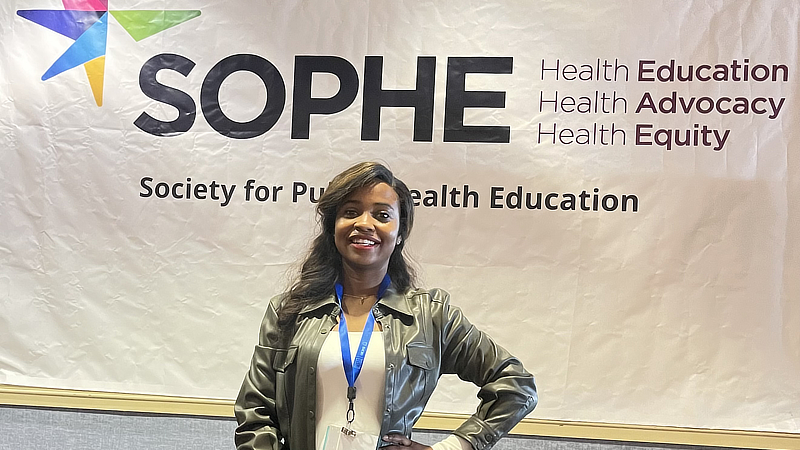
Both Olaseni and Kohli said they liked contributing to roundtable discussions at the conference and each said a very meaningful moment came when they had the chance to talk with keynote speaker Camara Phyllis Jones, M.D., M.P.H., Ph.D., a physician, renowned scholar, and activist who has spoken out for years on the effects of racism and social inequalities on health.
"That moment was deep for me," Olaseni said. "It was like having a speed-mentoring session with her."
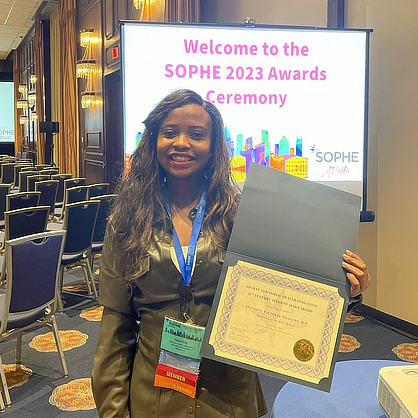
"It was surreal," Kohli added. "Dr. Jones has always spoken out about social injustice. I look up to her."
Kohli came to the University from Punjab, India where she was a medical officer and worked on the frontlines treating patients during the pandemic. She wanted to move into the field of public health. "From the day I started my first class, I was a fan of the University's MPH program," she said. "I found my voice here."
"I was a complete introvert when I arrived," she said. "I started to speak. I started to advocate, and I enjoy doing it. I'm really grateful to my professors who helped me develop my communications skills and who taught me so much. Now I can speak out on public health issues that matter."

The Charger Blog
Beatrice Glaviano ’26 shares her Spring Break journey of hiking Great Falls—and why unplugging is essential for college life.

The Charger Blog
Student researchers at the undergraduate and graduate level presented at the Born This Way Foundation’s event in NYC, sharing insights from their focus groups with LGBTQ+ youth.

The Charger Blog
Samantha Villa ’25 was recognized by the University’s Tow Youth Justice Institute with the Diane Sierpina Award. Through advocacy, leadership, and research, she is working to create meaningful change for young people in the justice system.